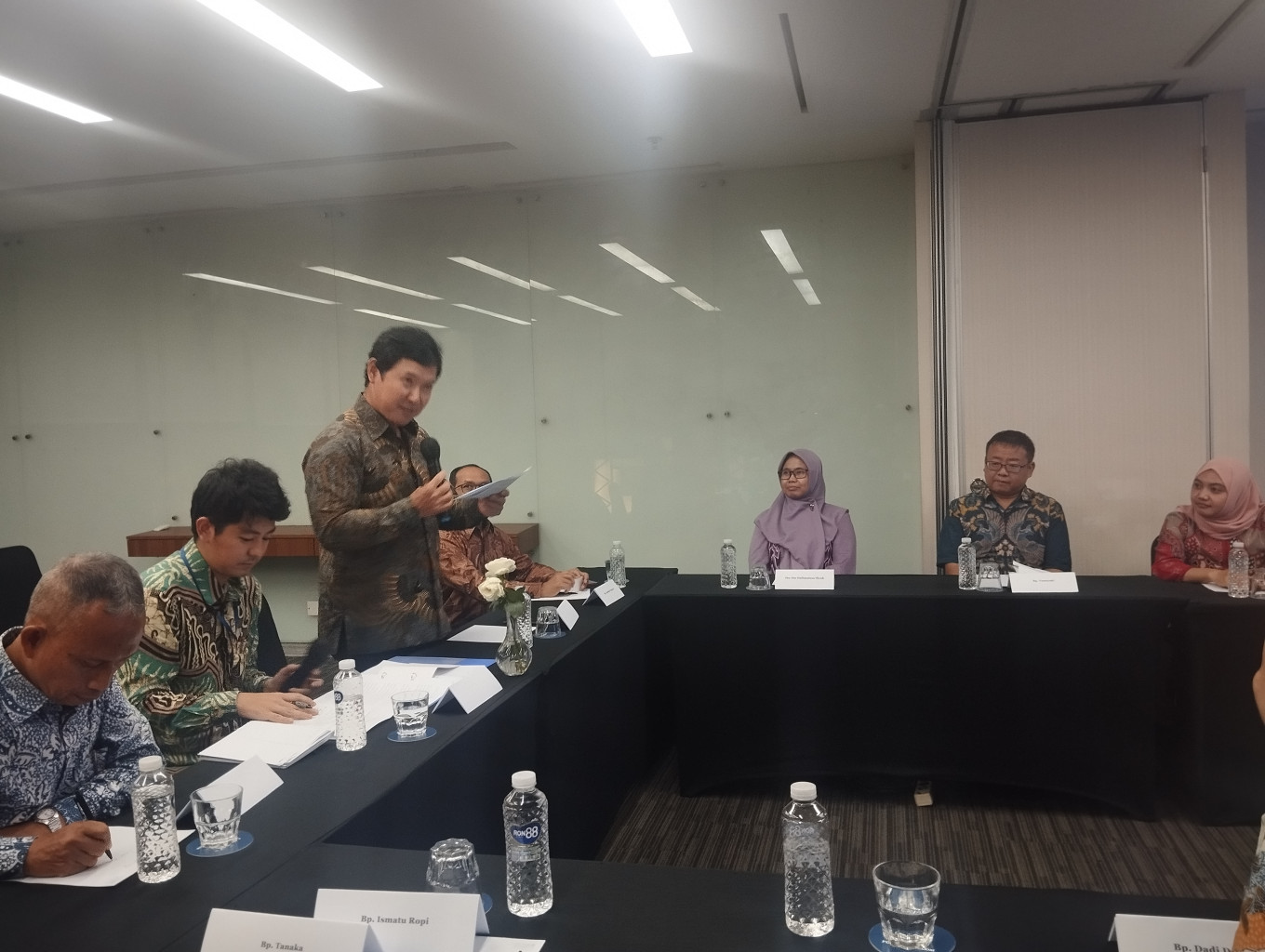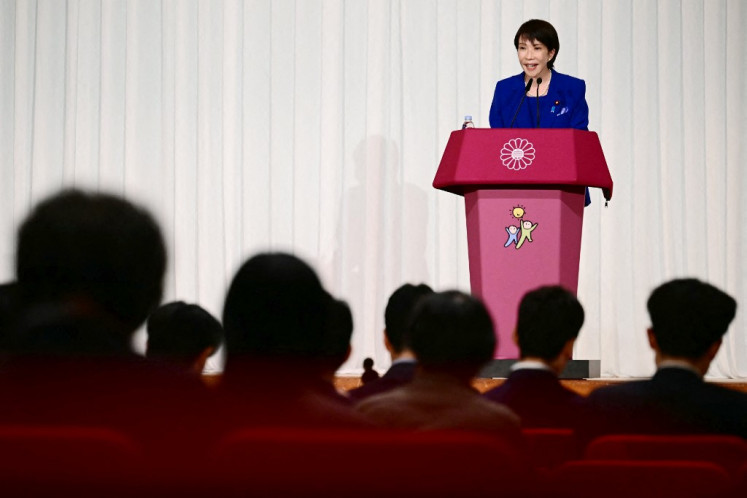Popular Reads
Top Results
Can't find what you're looking for?
View all search resultsPopular Reads
Top Results
Can't find what you're looking for?
View all search resultsPesantren leaders to introduce new disciplinary measures after Japan trip
Leaders from five pesantren (Islamic boarding schools) will apply at their schools lessons learned from participating in a cultural exchange program in Japan .
Change text size
Gift Premium Articles
to Anyone
D
uring a visit to a school in Japan as part of a cultural exchange program in early December, leaders from several pesantren (Islamic boarding schools) chatted with students who were curious about the countries their guests were from.
“Is this Indonesia?” asked a student, pointing at India on a map.
“No, that’s India, not Indonesia,” said one of the Islamic boarding school leaders.
“It’s the country that lost to Japan in a recent soccer match,” said a Japanese guide, prompting laughter from the group.
From Dec. 3 to 11, five Islamic boarding school leaders and a researcher of Syarif Hidayatullah State Islamic University's Center for the Study of Islam and Society (PPIM-UIN) visited Japan to learn techniques to be applied at their boarding schools.
Testriono of PPIM-UIN Jakarta accompanied leaders from cities across the country, including Kiki Mustaqimah Hasan Basuni of the Darul Istiqamah Modern Islamic boarding school in Barabai, Central Hulu Sungai regency, South Kalimantan; and Ridwan Baidlowi of the Rahmatan Lil Alamin Islamic boarding school in Nganjuk, East Java.
Three other leaders included Latifatul Musyarrofah of the Al-Fakhiriyah multidimensional Islamic boarding school in Makassar, South Sulawesi; Sibawaihi Arsyad Husin of Al Falah boys Islamic boarding school in Banjarbaru, South Kalimantan; and Thalib Abdillah Aldjufrie of Alkhairaat boys Islamic boarding school in Palu, Central Sulawesi.
Upon returning from Japan, Kiki told reporters in Jakarta during a welcoming event on Dec. 11 that she was impressed by the orderliness of Japanese children in lining up for food during lunch.
Kiki said that the students took turns preparing their meals. While some students were still in line, those who had received food wait and read books, comics or study world maps — a habit she hopes to implement at her school.
“At Islamic boarding schools, there are long lines for everything, from meals to showers. So, to prevent the students from wasting time while waiting in line, I thought of providing bookshelves in the waiting areas so they can be encouraged to read without feeling forced,” Kiki said.
During a visit to a kindergarten, Kiki was amazed when two students, Hana and Hikari, took the initiative to welcome the guests and show them around the school while their teacher was busy.
“They are still young, but they are quick to respond,” Kiki said.
“From visiting these schools, I think character education teaches Japanese children to take responsibility.”
In addition to visiting schools, the boarding school leaders also visited places of worship in Tokyo and Kyoto to engage in interfaith dialogue. They stayed in a homestay for three days and met with Japanese Parliamentary Vice Foreign Affairs Minister Akiko Ikuina.
The visit took place during Japan's winter season, with Tokyo's average temperature reaching 7 degrees Celsius.
Jamhari Makruf, one of the initiators of the program to send Indonesian Islamic scholars to Japan and currently the rector of the Indonesian International Islamic University (UIII), said that one of the participants was unaccustomed to the cold weather.
"One of the participants shared a funny story with me," Jamhari recounted on Dec. 11.
"He stepped out of the hotel wearing a sarong and flip-flops, as he usually does in Indonesia. After just a few steps outside, he felt freezing cold."
Jamhari also shared his experience from a visit to Japan several years ago when he accidentally took the wrong bus and ended up outside of Tokyo.
"I thought I should have arrived by then, but the bus kept going. Eventually, I realized I was lost. A local resident kindly escorted me back to the station," he said.
This experience, he added, reinforced his impression that Japan strongly emphasizes politeness and hospitality, values that remain deeply ingrained. He said that the boarding school leaders who experienced similar kindness during their visit could draw inspiration from Japan in advancing knowledge while staying true to their identity.
Senior researcher at PPIM-UIN Didin Syafruddin explained that the program was initiated in 2004 to reduce mutual suspicion between Muslims and non-Muslims following the Sept. 11 World Trade Center tragedy three years earlier and the 2002 Bali Bombings.
“To address this mutual suspicion, Prof. Jamhari, Japanese diplomat Tanaka Motoyasu, the then-Japanese ambassador to Indonesia Yutaka Imura and the late Prof. Azyumardi Azra developed a people-to-people communication program,” Didin said.
Japanese Deputy Ambassador to Indonesia Katsuro Nagai said that the program, which was paused because of to the COVID-19 pandemic and resumed in 2022, had sent over 180 participants since it began 20 years ago.
“I am eagerly looking forward to seeing how you will implement the experiences gained in Japan in your respective Islamic boarding school activities,” he said.










